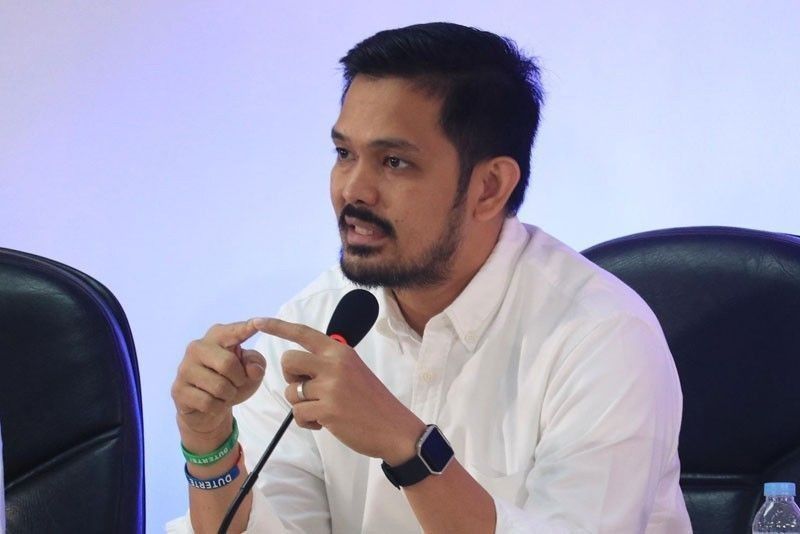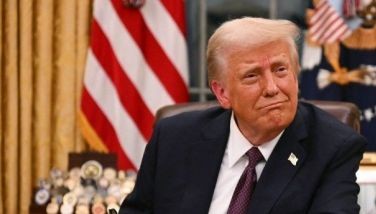Whatever happened to: National Anti-Corruption Coordinating Council

MANILA, Philippines (Updated May 2, 2022, 4:49 p.m.) — The coronavirus pandemic saw the Duterte government name "czars" and create task forces to address its problems and to have designated point persons to report directly to the president.
One such task force was the National Anti-Corruption Coordinating Council, which the Presidential Anti-Corruption Commission formed while senators grilled the Department of Health in 2021 over deficiencies flagged by the Commission on Audit.
This came eight months after President Rodrigo Duterte already ordered the creation of a high-level inter-agency task force to probe the "entire government" of corruption. That body, headed by Justice Secretary Menardo Guevarra, was initially called the "mega task force" against corruption.
Whatever happened to the NACCC? As of this writing, the National Anti-Corruption Coordinating Council has no government website of its own or even a social media presence.
A cursory Google search yields no mandate, transparency page, or achievements for the national coordinating council, which the Presidential Anti-Corruption Commission — the body that created the NACC — asserted would be more "preventative and educative rather than investigative."
Most mentions of the NACCC as an entity are made on the PACC's own page.
Its vice-chair, Greco Belgica, is now running for senator with the endorsement of President Rodrigo Duterte.
In an online exchange with Philstar.com, Justice Secretary Menardo Guevarra said that as of April 2022, the Task Force Against Corruption, the separate task force that his agency leads, has acted upon "nearly 500 corruption complaints received from various sources" involving "alleged corruption in government procurement activities and in public works projects implemented in local government units."
Asked about how the NACCC and the TFAC have interacted over the past few months given their similar focus, the Justice chief said: "The TFAC and the ACCC have separate mandates and there is no formal linkage between them, but they are aware of each other’s role and objectives as they have some common member agencies."
He added that the PACC itself, not the ACC committees, has submitted numerous investigation reports to the DOJ and TFAC for case build-up or endorsement to the Office of the Ombudsman.
"The TFAC deputation of DOJ prosecutors and COA auditors as resident ombudsmen in target agencies has been temporarily stalled by the expiration of the term of office of former COA chair Mike Aguinaldo," he also said.
"Its operationalization in the future is not seen to be in conflict with, but rather will complement, the activation of anti-corruption committees within the member agencies of the ACCC."
More acronyms, few plans
During the launch of the new body in September 2021, Belgica said that the new task force "seals the president’s firm commitment to really fight corruption the best that he can by institutionalizing anti-corruption committees in all levels of government."
He added that "we have not seen this in any government."
The project’s expected outcomes include the “monitoring [of] the delivery of government services and detection of corruption incidents through an integrated command center.”
It also aims to establish anti-corruption committees in every agency and level of government — down to the barangays.
Belgica said that the NACCC is also tasked to formulate an annual national action plan against corruption and an integrated command center to monitor the delivery of government services.
Accomplishments touted ahead of election season
Did the national council achieve what it set out to do? At a press conference on April 8, lawyer Fortunato Guerrero, PACC chairman, said that since March 2021, the PACC investigated a total of 146 complaints.
Of which, 98 were fact-finding investigations, 26 were motu-proprio (on their own initiative) investigations, and the remaining 22 are lifestyle checks.
Among these were a motu proprio investigation into the alleged advance payment made by the Philippine Health Insurance Corporation to the Philippine Red Cross.
The PACC said the results of the probe were forwarded to Task Force PhilHealth, which is headed by the Department of Justice, "and the commission just finished the administrative aspect of the investigation."
It added then that the top 5 agencies with the most number of complaints were the Department of Agrarian Reform, Department of Public Works and Highways, Department of Agriculture, National Labor Relations Commission, and Bureau of Customs.
The PACC also presented Oplan Check, Rattle & Roll under which commissioners will review and assess the Statements of Assets, Liabilities and Networth of presidential appointees based on complaints logged with the commission.
This is "to determine if the latter have increases in net worth which are manifestly disproportionate to their declared and known sources of income [and] determine if any presidential appointee has unexplained wealth which have been accumulated during the Duterte administration."
'Leadership and guts'
Per data presented at the April 8 press conference, just 33 government agencies overall have established anti-corruption committees. Of that number, only 15 out of 22 departments in the executive branch have established ACCs.
Only ten have dedicated anti-corruption hotlines that forward information to the PACC.
Philstar.com reached out to lawyer Baldr Bringas, the new PACC commissioner for more updated figures as of Tuesday, April 26. He has yet to respond as of this post.
Asked to evaluate the progress of the project thus far in a phone call with Philstar.com Tuesday afternoon, former PACC commissioner Belgica said that laying down the structure of the national council was the first step, while the remaining deliverables were expected of the local councils.
Belgica insisted that it was actually 49 agencies that signed the commitment to form ACCs in their offices.
"It's already nearly 100 percent of major agencies and law enforcement," he said in Filipino. He went on to say that the task force's achievements were a product of "leadership and guts."
Local councils 'institutionalized' in time for next admin
Will the next president have to issue another executive order to create a NACCC? Based on the memorandum of agreement, Belgica said, the local councils should have already been "institutionalized."
"They all agreed to do that and committed to do that and signed the document to do it thus far," Belgica said. "Then every agency will start to determine on their own their different needs as basis of formulating their own anti-corruption priorities, because those are always different."
But memoranda within the executive branch have no force of law and are voluntary in nature on the part of signees, Belgica acknowleged.
And what about the goal of bringing the anti-corruption councils set up in barangays? Belgica said the ball was now in the DILG's court.
"They should have released that directive or memorandum so the barangays and local government units can start creating the ACCs. Maybe they're busy campaigning, so the next administration can just look for that and implement," he said.
"By next year, they should already be evaluating their accomplishments and achievements and formulating their next steps. That's why it's a council — everybody will have to independently create their own strategies and assessments."
Asked about mechanisms to ensure the NACCC's continuity moving forward, the former PACC chair brought up his senatorial run.
"I will create a law to strengthen the anti-corruption campaign. It's going to be bigger, stronger, and more powerful than task forces and commissions," he said.
Belgica has taken the position that there should be anti-corruption committees in all government offices, though the PACC’s mandate is limited to the executive branch, particularly presidential appointees to top government positions.
"As long as the idea or concept is being implemented, it's okay with us...That depends on our new leaders and how dedicated they are to the anti-corruption and anti-drug campaign," Belgica said.
At the PACC's press conference in early April, its commissioners also called for amendments to the law allowing graft investigators to access the bank accounts of other government officials.
"If we don't have that access, even if we know that an official suddenly got rich, it will be hard to get evidence," lawyer Jesus Hinlo, PACC commissioner, said in mixed Filipino and English.
Duterte and his task forces, acronyms, and redundancies
Under the Duterte administration, task forces appeared to be the go-to solution of the national government despite few successes to show so far.
As in the case of the Inter-Agency Task Force on Emerging Infectious Diseases, the Office of the President is typically part of these task forces, though it generally only receives reports from the other implementing agencies.
Others, like the National Task Force to End Local Communist Armed Conflict emphasize the formation of a "whole-of-nation" approach supposedly meant to trickle down to the local and barangay levels of government.
In 2016, Duterte ran on a campaign built almost solely on lofty plans to fight drugs, criminality, and corruption. In his speeches, the president had often boasted that he will not tolerate a whiff of corruption — which critics have pointed is a campaign that failed.
On December 31, 2021, the chief executive also signed into law a bill creating a department for the welfare of overseas Filipino workers, to be formally called the Department of Migrant Workers.
This, despite the existence of the Philippine Overseas Employment Administration, the International Labor Affairs Bureau, the National Reintegration Center for OFWs, and Overseas Workers Welfare Administration under the Department of Labor and Employment; and the Office of the Undersecretary for Migrant Workers' Affairs and Philippine Overseas Labor Office under the Department of Foreign Affairs. — with reports from Kristine Joy Patag
- Latest
- Trending




































